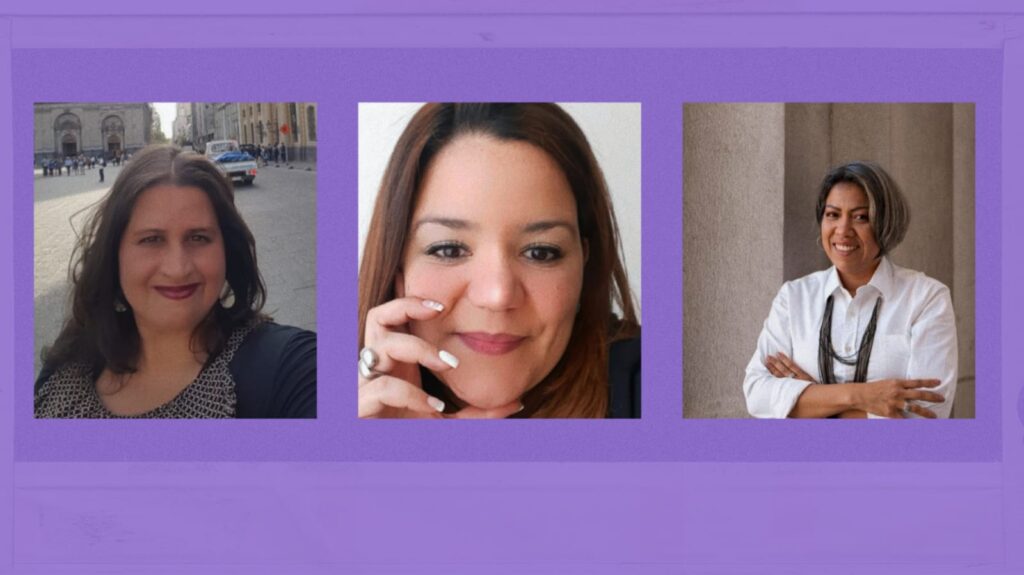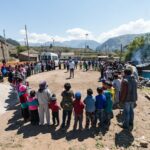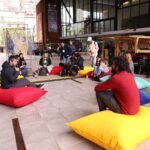- March 8, 2023
- Benjamin Pino

Introducing women who are bringing about innovative change
To commemorate Women’s Month, we brought together leaders who are making important changes in social innovation for the migrant community in Latin America. We invite you to meet María Irene, Sinay and Peggy, to be inspired by their transformative stories.
March 8 marks the commemoration of the International Women’s DayThe event was a day of reflection on the role of women in society and the pending challenges to achieve gender equality. There is still a long way to go to achieve gender equality, but there are thousands of people working every day to achieve it.
The migration phenomenon is not exempt from these situations, as many migrant women face the multiple challenges of integrating into new communities, finding work and attending to child-rearing and/or domestic responsibilities.
In response to this and many other challenges, social innovation initiatives have been created to empower women who make the decision to migrate. Let’s meet some of the leaders in this area:
Peggy Rivas
Peggy is a Venezuelan migrant woman living in Buenos Aires. She is general director of the Asociación Mujeres Emprendedoras de Venezuela (Venezuelan Women Entrepreneurs Association) and representative of the project Semilleras de Emprendedoras Latam (AME), an initiative to contribute to the economic and social integration of Venezuelan migrant families in Argentina. (AME), an initiative that seeks to contribute to the economic and social insertion of Venezuelan migrant families in Argentina.
Peggy has a distinguished career in entrepreneurship training: she has led social organizations in children, adolescents and women’s issues. In addition, it has taught women to read and write and accompanied them on their entrepreneurial paths, through programs aimed at promoting women’s participation in different areas of society.
One of these projects was “Semilleras”, where together with the AME team they have trained hundreds of women in gender, human rights and technology, to enhance their empowerment and give them a new perspective on their social role as migrant women.
María Irene Urdaneta
The co-founder of UP Migrant Women, María Irene Urdaneta, has 15 years of experience in the development of social impact projects. One of them is Migrant Woman Entrepreneur a program implemented in Chile, which supports migrant women entrepreneurs with training and mentoring to strengthen their businesses.
Like Peggy, María Irene is a Venezuelan migrant, although Urdaneta has settled in Santiago, where she coordinates and manages various projects that help women entrepreneurs.
María Irene publicly stated that “women make up half of the planet’s population, which is why our participation in all areas and spheres of sustainable development is a priority for all of us to work together towards a brighter future.
Sinay Delgado
The virtual network Migramujeres turned three years old this March 8! To celebrate, let’s meet its director, Sinay Delgado, a Venezuelan woman living in Chile who created this community to watch over the rights of migrant women through free services.
They offer guidance and information on migration processes, vocational training and support focused on women who have been victims of violence. Their network welcomes a community of hard-working, progressive, visionary and empowered migrant women.
***
Migrant women have played active roles in the search for solutions to the problems that afflict the Latin American migrant community.
If you would like to know more social innovators working in other areas of expertise, feel free to visit our profiles of social innovators .


